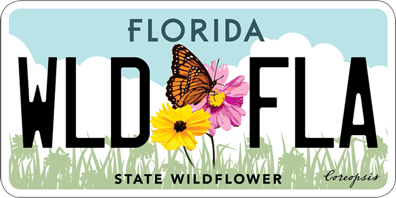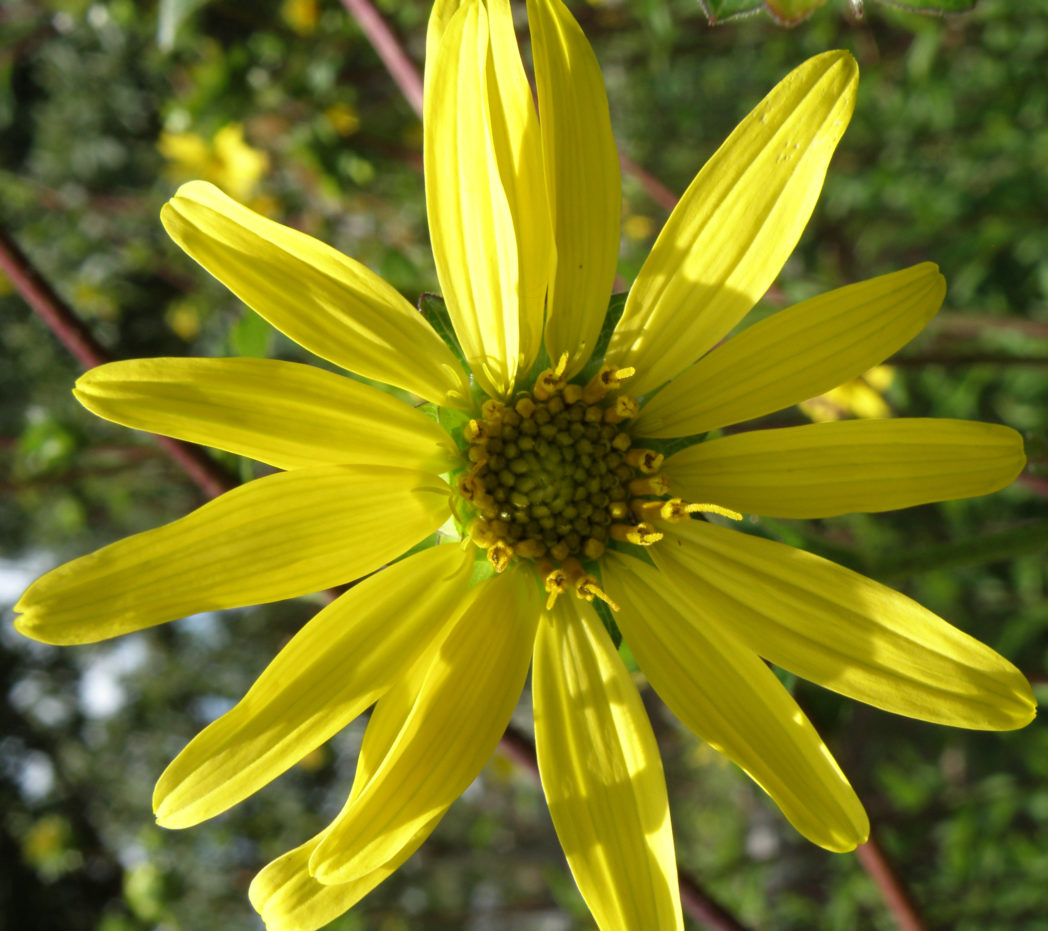Starry rosinweed
Pictured above: Starry rosinweed (Silphium asteriscus) by Stacey Matrazzo. Click on terms for botanical definitions. View post as a PDF.
Starry rosinweed (Silphium asteriscus) is a robust wildflower that occurs naturally in flatwoods, sandy pinelands and disturbed areas. Its bright showy flowers attract a variety of butterflies, native bees and other pollinators. Birds will eat its seeds.
Flowerheads are large — up to 2½ inches in diameter. They are composed of many bright yellow ray florets surrounding a center of yellow to green disk florets. Flowerheads are born on branched stems and supported by an involucre of large bracts. Leaves are lanceolate with toothed margins and rough surfaces. Seeds are born in winged achenes.
The common name “rosinweed” refers to the gummy or resinous substance found in the stems. Native Americans chewed stems to clean their teeth. Rosinweeds have a long history of medicinal uses in North America and Europe.
Family: Asteraceae (Aster, daisy or composite family)
Native range: Panhandle and western central peninsula south to Lee County
To see where natural populations of Starry rosinweed have been vouchered, visit www.florida.plantatlas.usf.edu.
Life span: Perennial
Soil: Moderately dry to moist, well-drained soils
Exposure: Full sun to partial shade
Growth habit: 2–5’ tall
Propagation: Seed
Florida regions of landscape suitability: North, Central
Garden tips: Starry rosinweed is especially loved because it blooms over a long period of time. The plant will persist in the landscape, although it may die back in the winter, and can reseed on its own. Although its natural range is the west side of the peninsula, it performs well throughout much of the state. It is a prolific seeder and will typically self-seed if allowed, although seed collection is also easy (simply remove the dried, dead flowerheads).
Starry rosinweed is often available at nurseries that specialize in native plants. Visit www.PlantRealFlorida.org to find a native nursery on your area. Seeds are also available through the Florida Wildflower Growers Cooperative.
Learn more about Starry rosinweed from the Florida Native Plant Society and the Institute for Regional Conservation.

